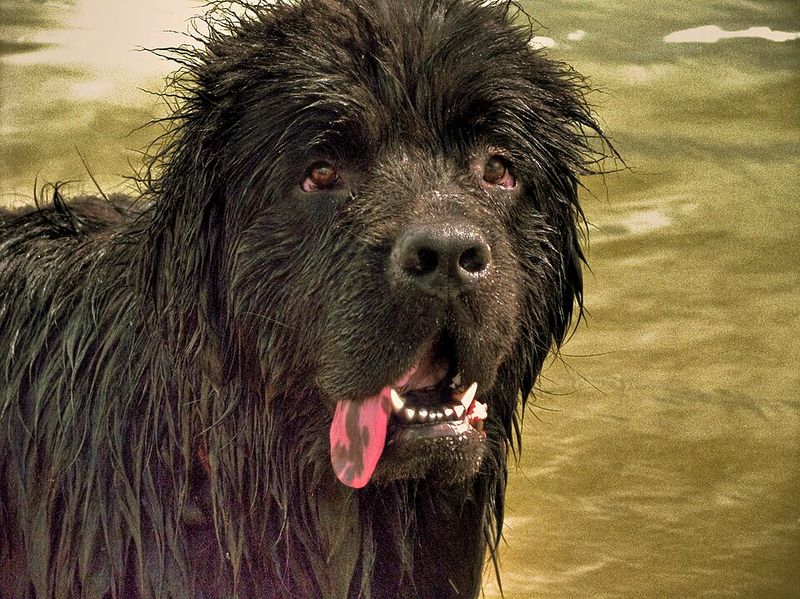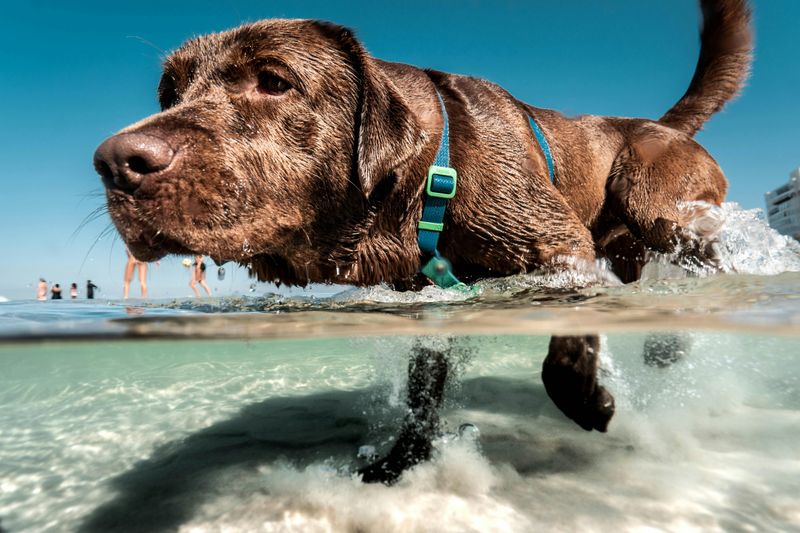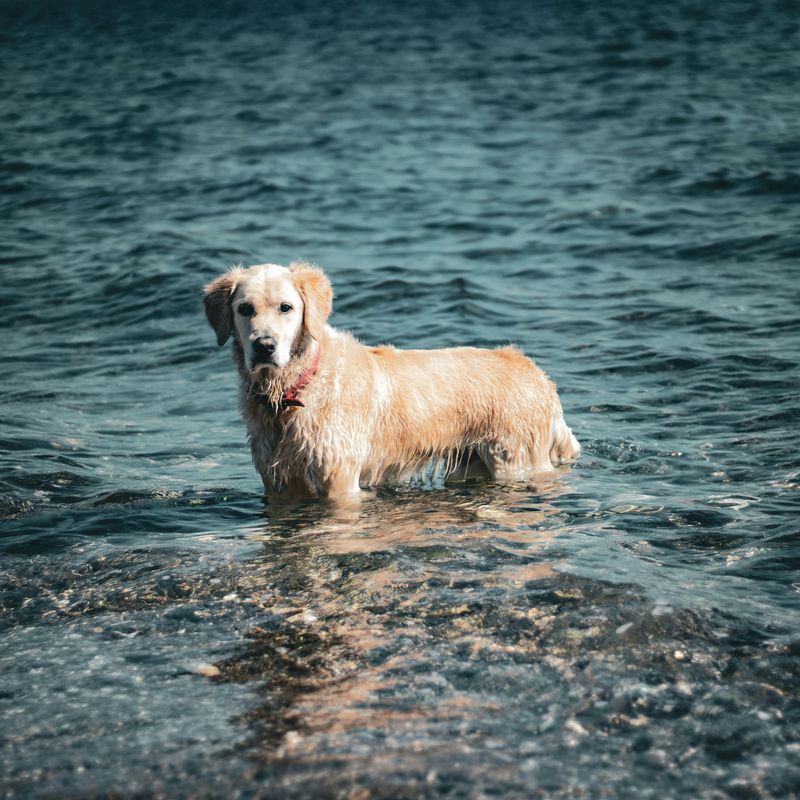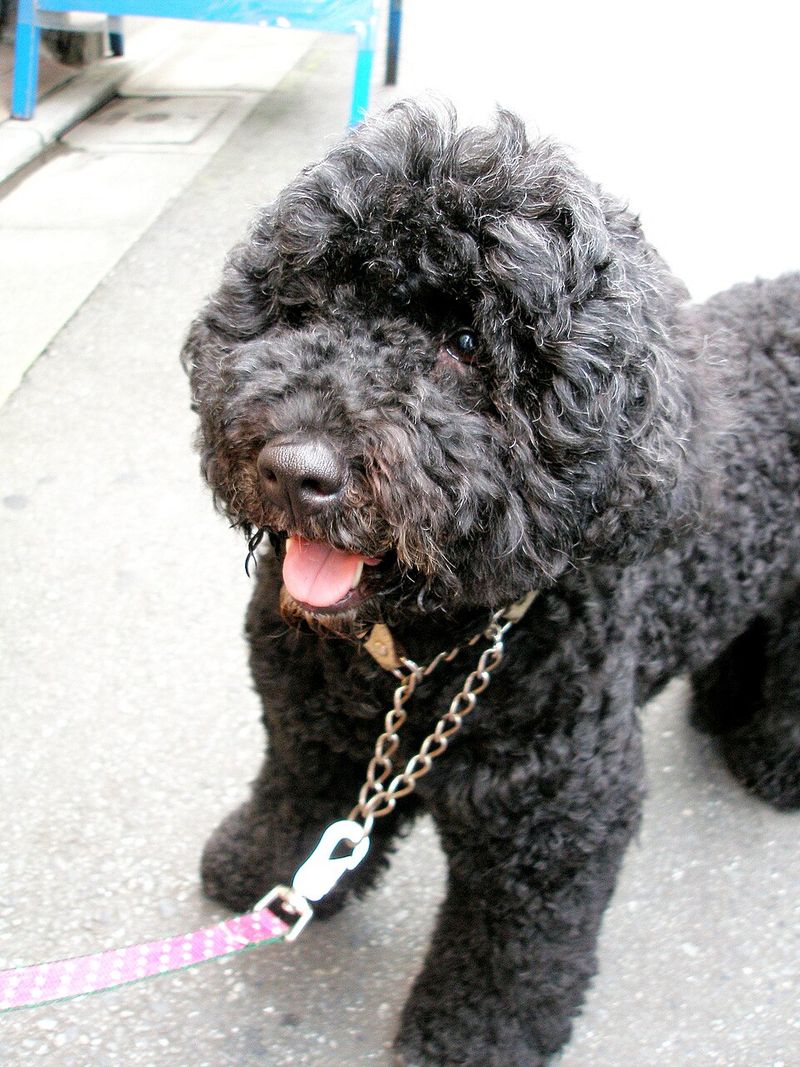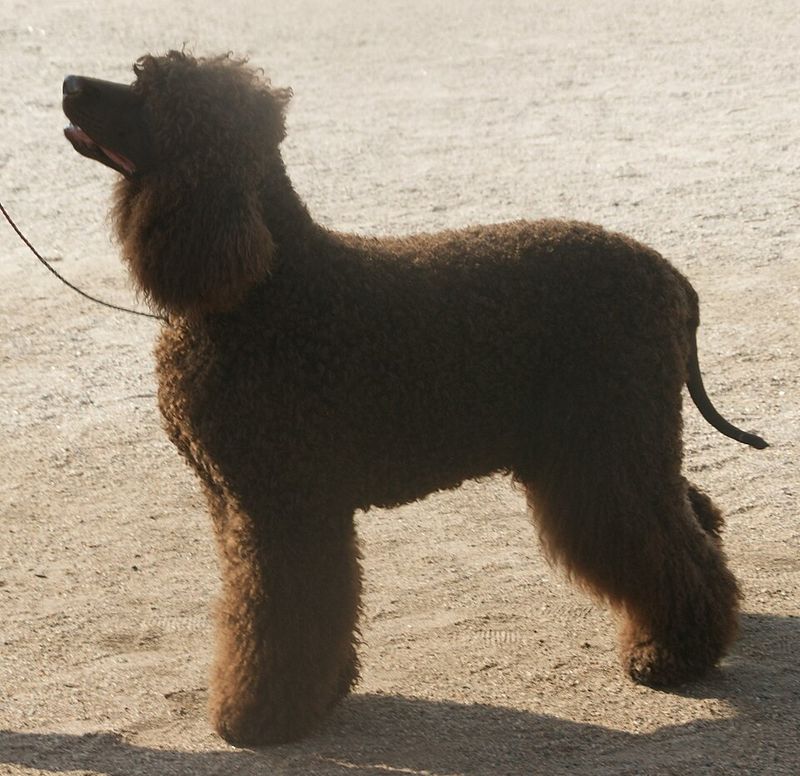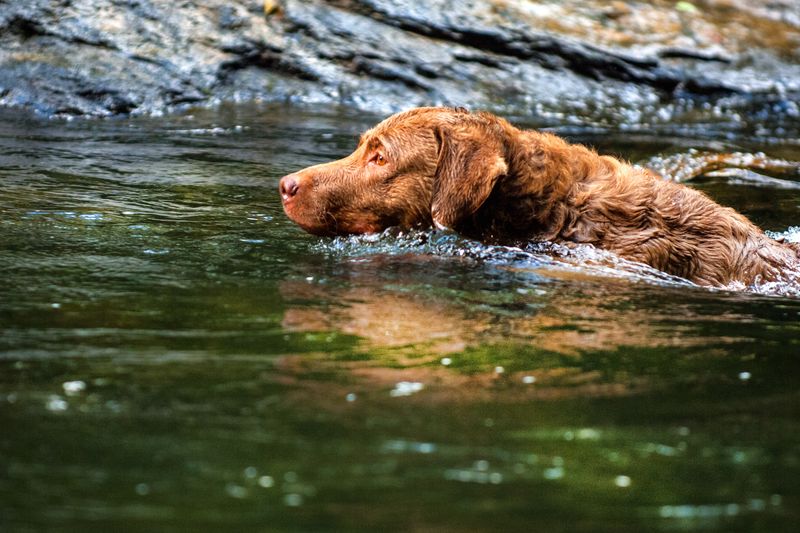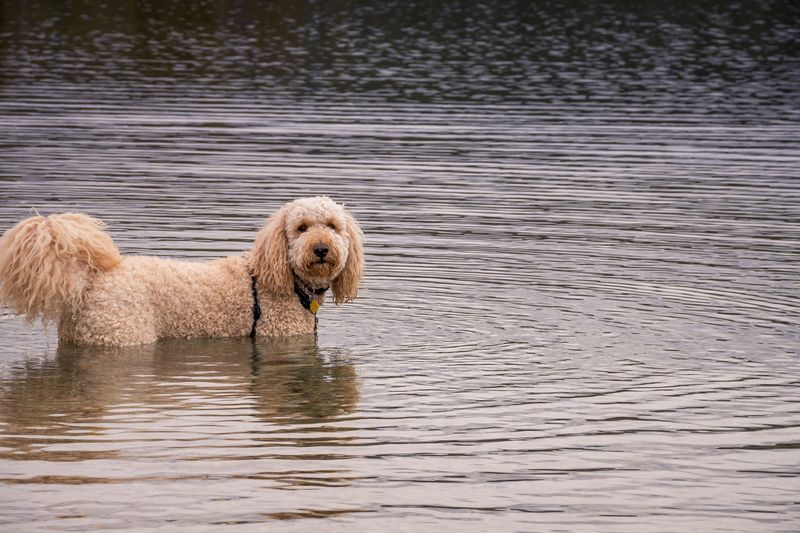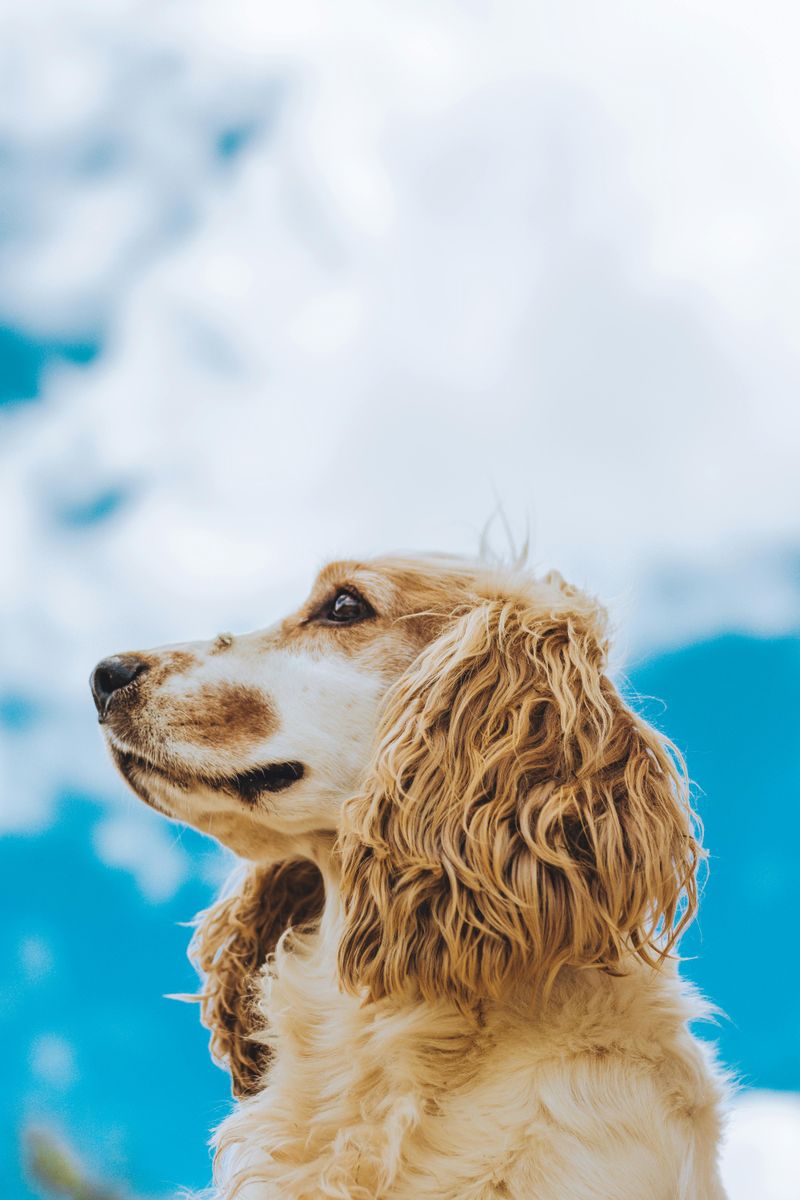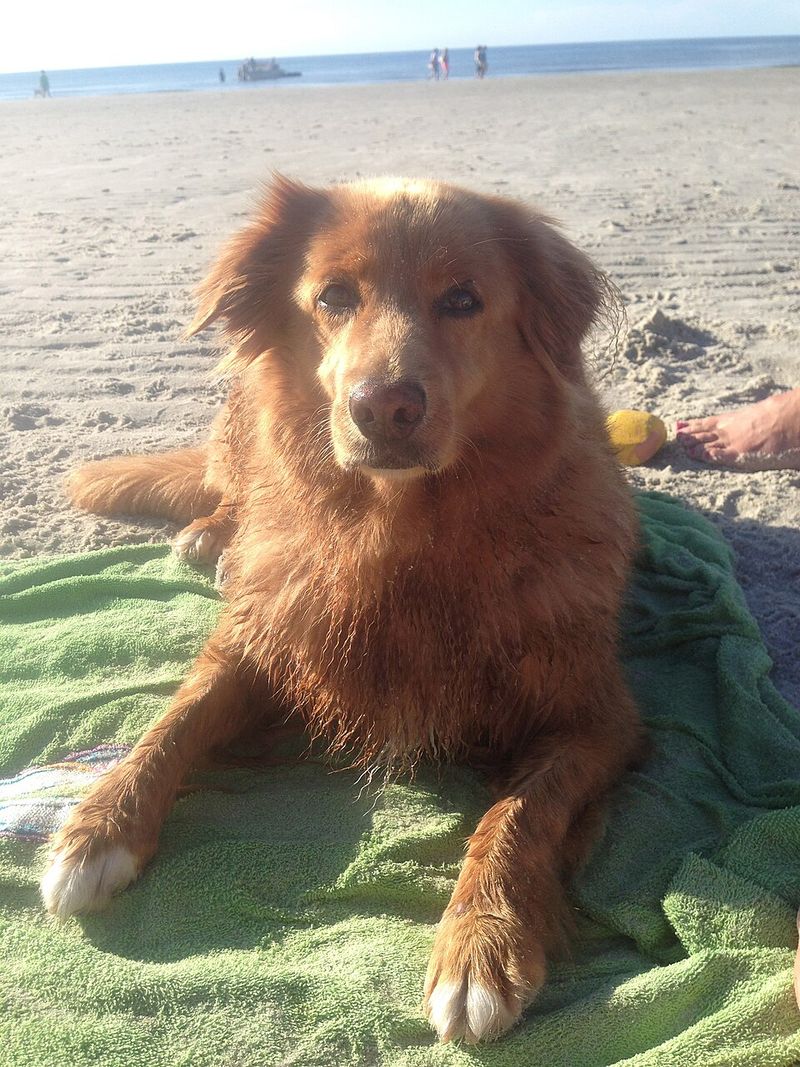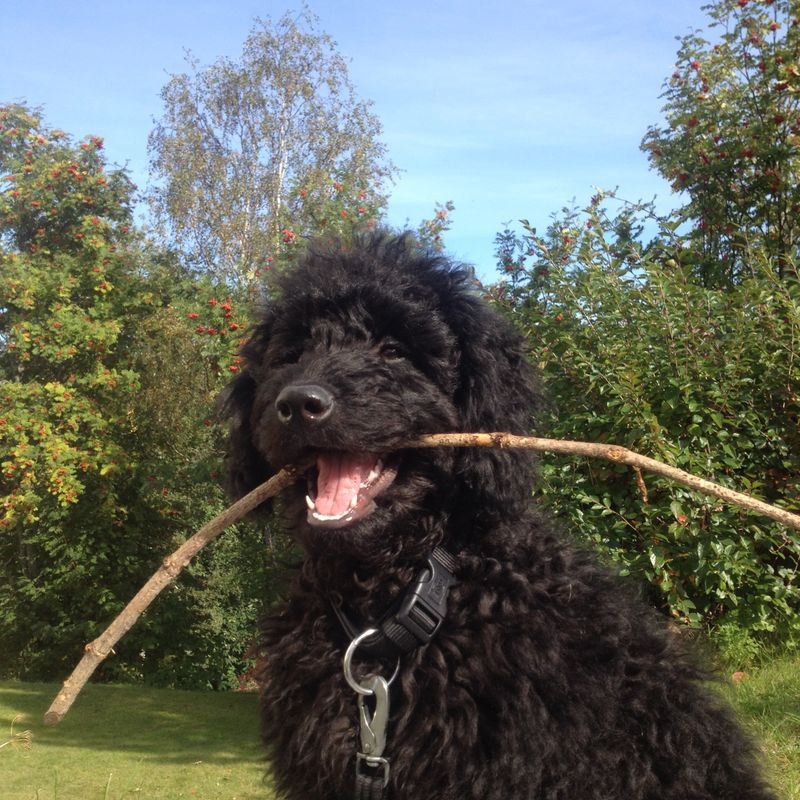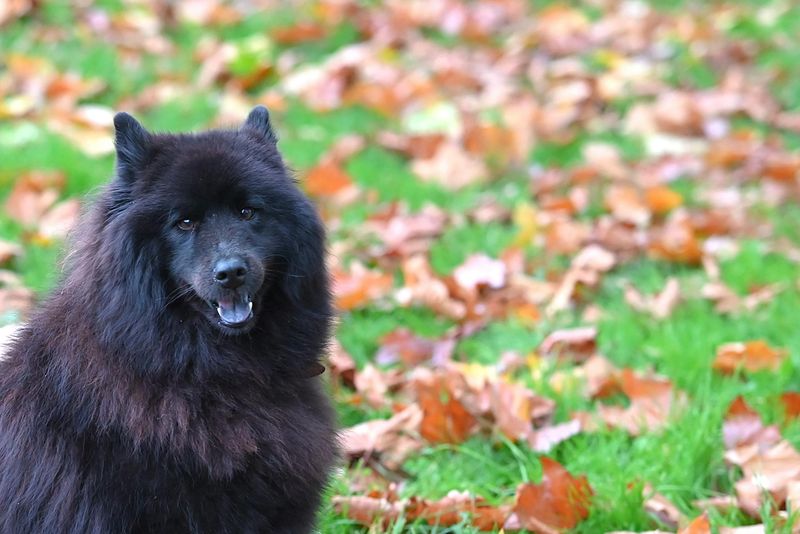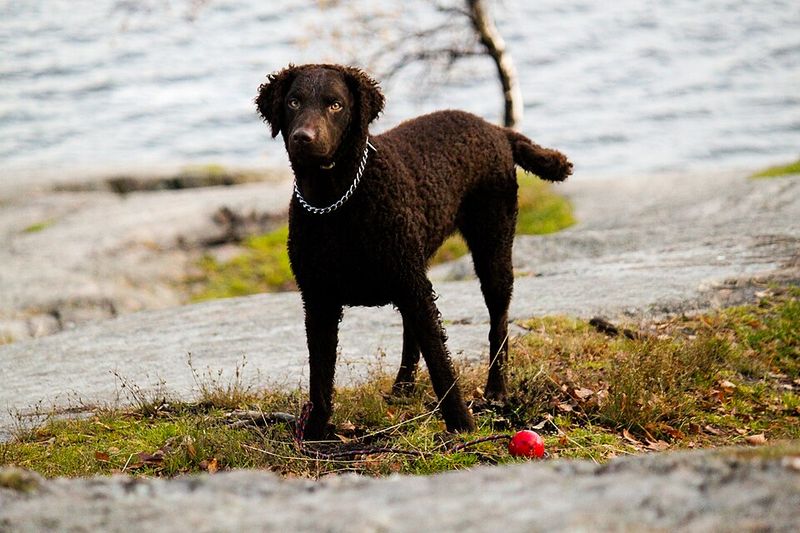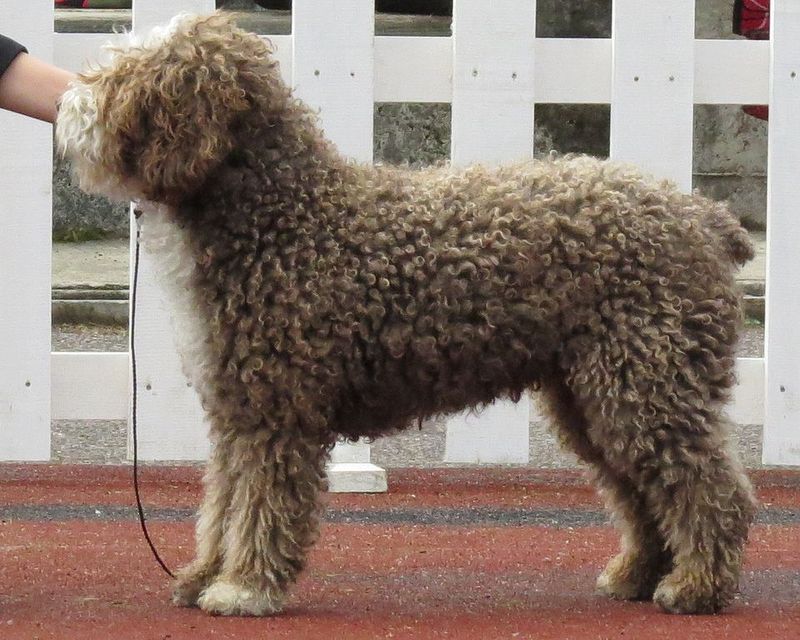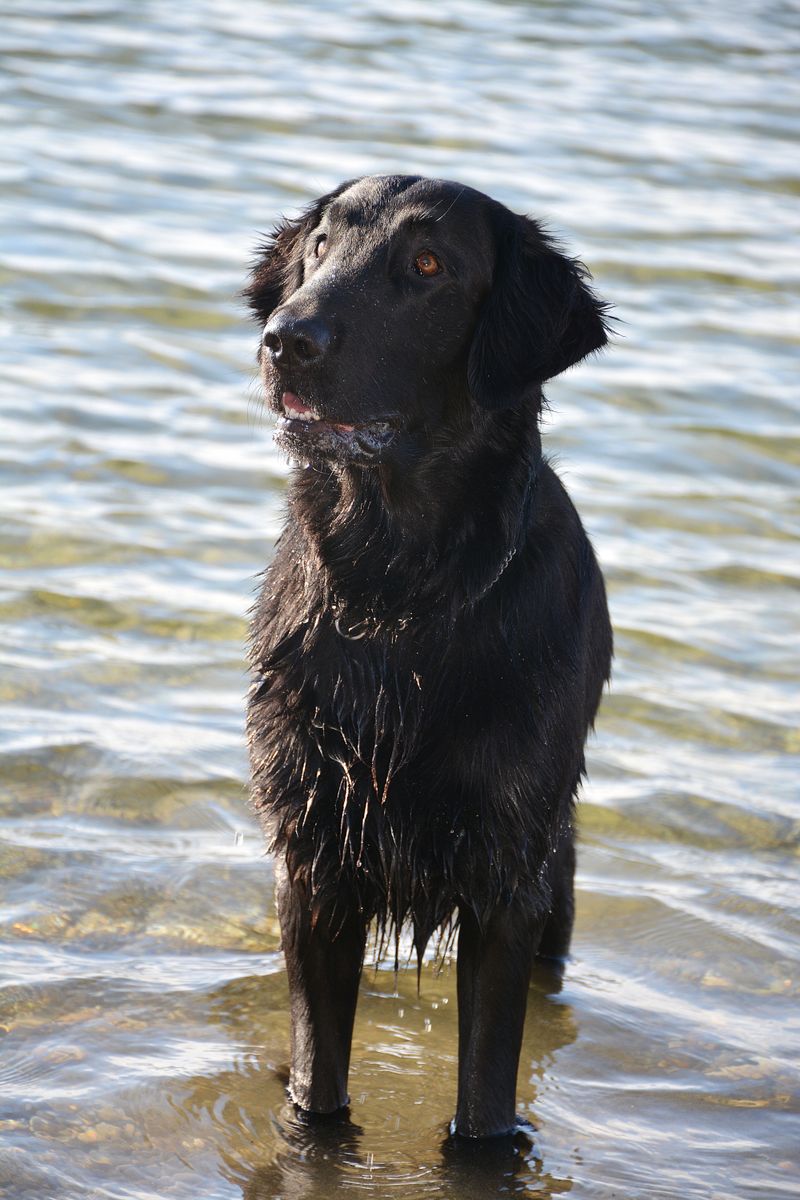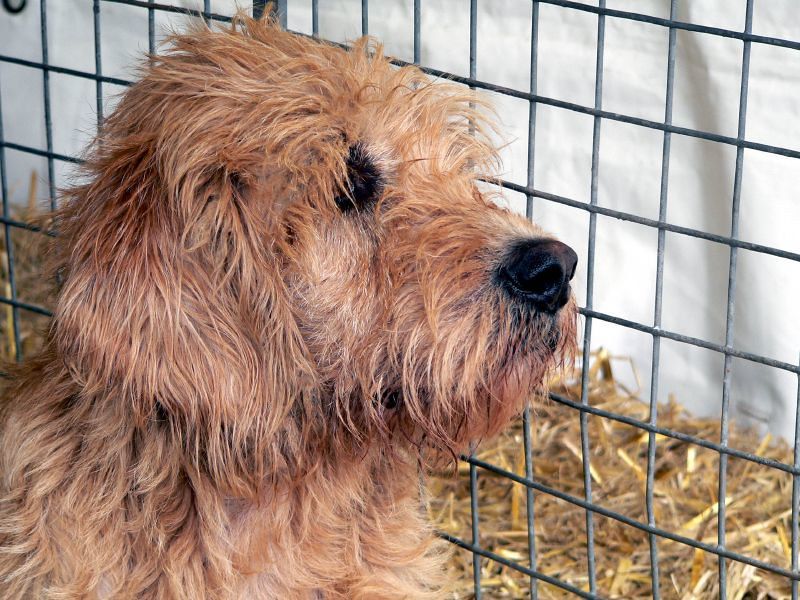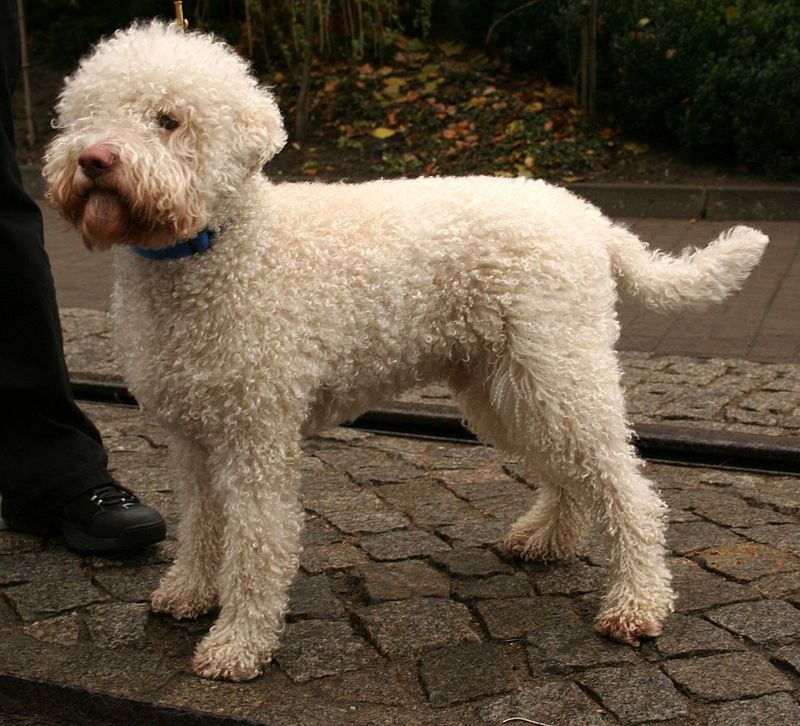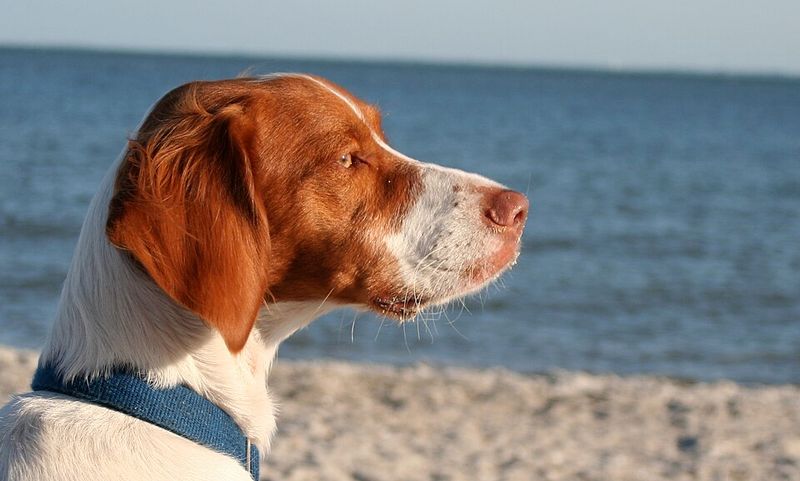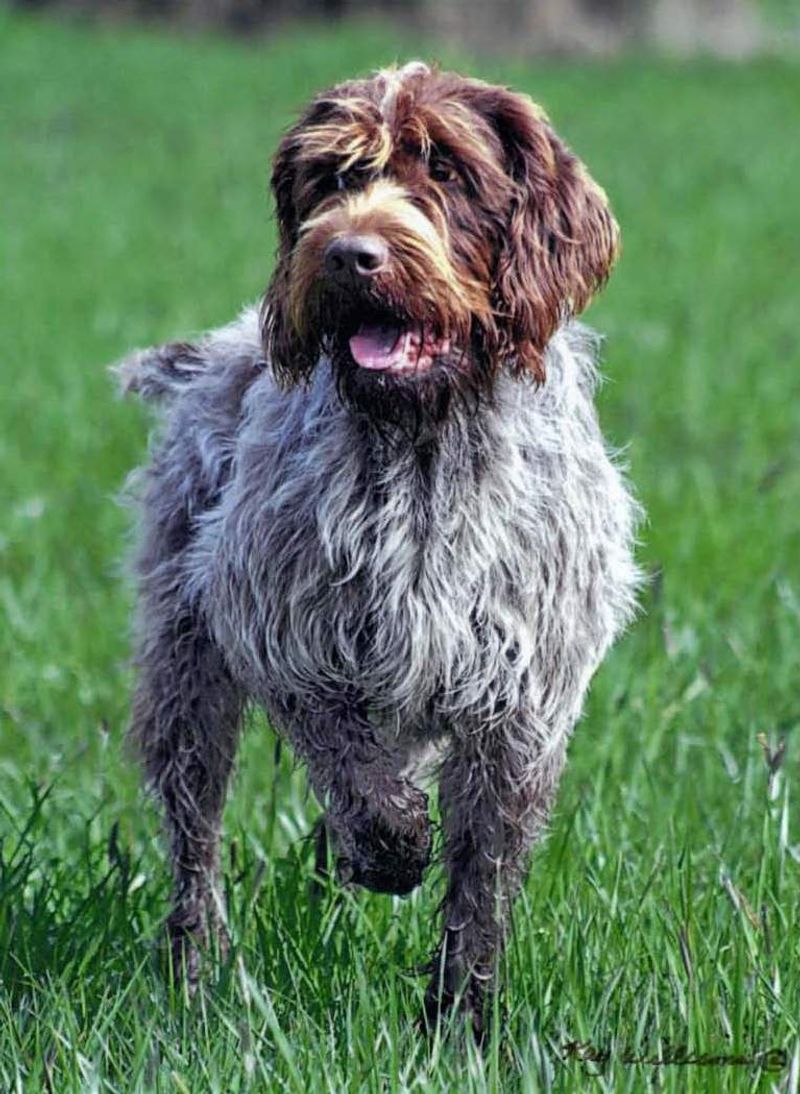Some dogs are natural aqua enthusiasts, diving into any water source they can find. However, their love for swimming often requires specific grooming needs to keep them healthy and happy. Here’s a guide to 18 dog breeds that thrive in water and the post-swim grooming they need.
Newfoundland
With a heart as big as its paws, the Newfoundland is every child’s gentle guardian. Known for their love of water, they have a dense, water-resistant coat that helps them excel in swimming.
After a swim, it’s essential to thoroughly dry their coat to prevent skin infections. Brushing is crucial to keep their fur free from tangles.
Did you know? Despite their massive size, Newfoundlands are known to be excellent water rescue dogs, saving lives with their powerful swimming ability.
Labrador Retriever
Playful and energetic, Labradors are often seen as the ultimate family pet. Their water-resistant coat makes them excellent swimmers.
However, after a swim, drying their ears is crucial to prevent infections. Regular brushing helps manage their shedding.
Labradors are originally from Newfoundland, not Labrador! They were bred to assist fishermen, which explains their aquatic prowess.
Golden Retriever
Golden Retrievers are known for their sunny disposition and love for water. Their thick, double coat requires attention after a swim.
To maintain their luxurious fur, regular brushing is necessary, especially after getting wet. This helps prevent matting and keeps them comfortable.
These dogs are not only great swimmers but also exceptional at retrieving, hence their name.
Portuguese Water Dog
Bred to work on fishing boats, the Portuguese Water Dog is as comfortable in water as they are on land. Their curly coat is both a blessing and a challenge.
Post-swim, it’s crucial to thoroughly rinse and dry their coat, as trapped moisture can lead to skin issues. Regular grooming helps maintain their unique look.
Fun fact: This breed was once a staple on Portuguese fishing vessels, helping to herd fish into nets.
Irish Water Spaniel
Unique in appearance, the Irish Water Spaniel sports a curly, water-repellent coat. Their love for water is matched by their need for grooming.
After swimming, careful drying and brushing are necessary to prevent their curls from matting. Regular grooming keeps their coat and skin healthy.
These dogs were originally bred for retrieving in cold water, showcasing their endurance and love for swimming.
Chesapeake Bay Retriever
With a love for water matched by few, the Chesapeake Bay Retriever is a powerful swimmer. Their oily, dense coat protects them in cold waters.
Frequent brushing is essential to manage their shedding. After a swim, ensure their coat is dried to avoid skin issues.
Known as Chessies, these dogs were bred to retrieve waterfowl, which explains their affinity for water.
Standard Poodle
Graceful and intelligent, the Standard Poodle is often seen prancing by water. Their dense, curly coat requires specific grooming care.
Post-swim, drying and brushing are vital to avoid matting. Regular grooming appointments help keep their coat in top condition.
Did you know? Poodles were originally bred as water retrievers in Germany, showcasing their natural talent for swimming.
American Water Spaniel
The American Water Spaniel is an energetic dog with a strong desire to swim. Their wavy, dense coat requires diligent care after water activities.
After a swim, ensure their coat is thoroughly dried and brushed to prevent tangles. Regular grooming maintains their coat’s health.
This breed was developed in the United States as a versatile hunter, showcasing their affinity for water.
Nova Scotia Duck Tolling Retriever
Often called ‘Tollers,’ these retrievers are dynamic and love water. Their double coat is designed to keep them warm during swims.
After swimming, drying and brushing are necessary to maintain their coat’s condition. Regular grooming prevents matting and keeps them comfortable.
Tollers were bred to lure waterfowl, making them natural swimmers with a playful streak.
Barbet
The Barbet is a rare breed with a unique, fluffy coat that adores water. Their love for swimming is matched by their grooming needs.
After a swim, thorough drying and brushing are essential to prevent their coat from tangling. Regular grooming sessions help maintain their distinctive appearance.
Once used as waterfowl retrievers in France, Barbets are natural swimmers with a joyful attitude.
Schipperke
Despite their small size, Schipperkes have an adventurous spirit and a love for water. Their thick coat requires attention after swimming.
Drying their coat thoroughly is vital to maintain its health. Regular brushing helps manage their shedding.
Originally bred as ship’s companions, these dogs have a strong affinity for water, showcasing their bold personality.
Curly-Coated Retriever
Known for their distinctive curls, Curly-Coated Retrievers are natural water lovers. Their unique coat requires specialized grooming.
After a swim, careful drying and brushing are necessary to keep their curls free from tangles. Regular grooming helps maintain their coat’s texture.
These retrievers were bred for waterfowl hunting, highlighting their exceptional swimming ability and endurance.
Spanish Water Dog
The Spanish Water Dog is versatile, excelling in water activities. Their curly coat demands attention after aquatic adventures.
Post-swim, drying and detangling are necessary to keep their coat healthy. Regular grooming prevents matting and discomfort.
Originally used as herding dogs, their swimming skills are unmatched, making them a true water-loving breed.
Flat-Coated Retriever
Friendly and outgoing, Flat-Coated Retrievers have a passion for water. Their dense, straight coat needs care after swimming.
Drying and brushing are vital to prevent tangles and maintain their coat’s sheen. Regular grooming sessions keep them looking their best.
Bred for retrieving waterfowl, these retrievers showcase their love for swimming with boundless energy.
Otterhound
With their distinctive appearance, Otterhounds have a love for water that’s hard to match. Their dense, oily coat requires post-swim care.
Thorough drying and regular brushing keep their coat in good condition. Regular grooming helps prevent matting and skin issues.
Originally bred for otter hunting, these dogs are natural swimmers with a keen sense of adventure.
Lagotto Romagnolo
Known for their truffle-hunting skills, the Lagotto Romagnolo is also a water-loving breed. Their curly coat demands specific grooming after swimming.
Post-water activities, drying and detangling are essential to prevent matting. Regular grooming sessions maintain their coat’s texture and health.
These dogs were originally bred as water retrievers in Italy, showcasing their natural swimming ability.
Brittany Spaniel
Energetic and friendly, Brittany Spaniels have a love for water that’s infectious. Their dense, feathered coat needs special care after swims.
After a dip, thorough drying and brushing help maintain their coat’s health. Regular grooming sessions are essential to prevent tangles.
Originally bred for bird hunting, their agility in water is impressive, making them natural swimmers.
Wirehaired Pointing Griffon
With their rugged charm, Wirehaired Pointing Griffons have a strong affinity for water. Their wiry coat demands attention after swimming.
Post-swim, drying and brushing are crucial to prevent tangles and keep their coat healthy. Regular grooming sessions are recommended.
Bred for hunting in challenging terrains, these dogs are exceptional swimmers with a love for water activities.

